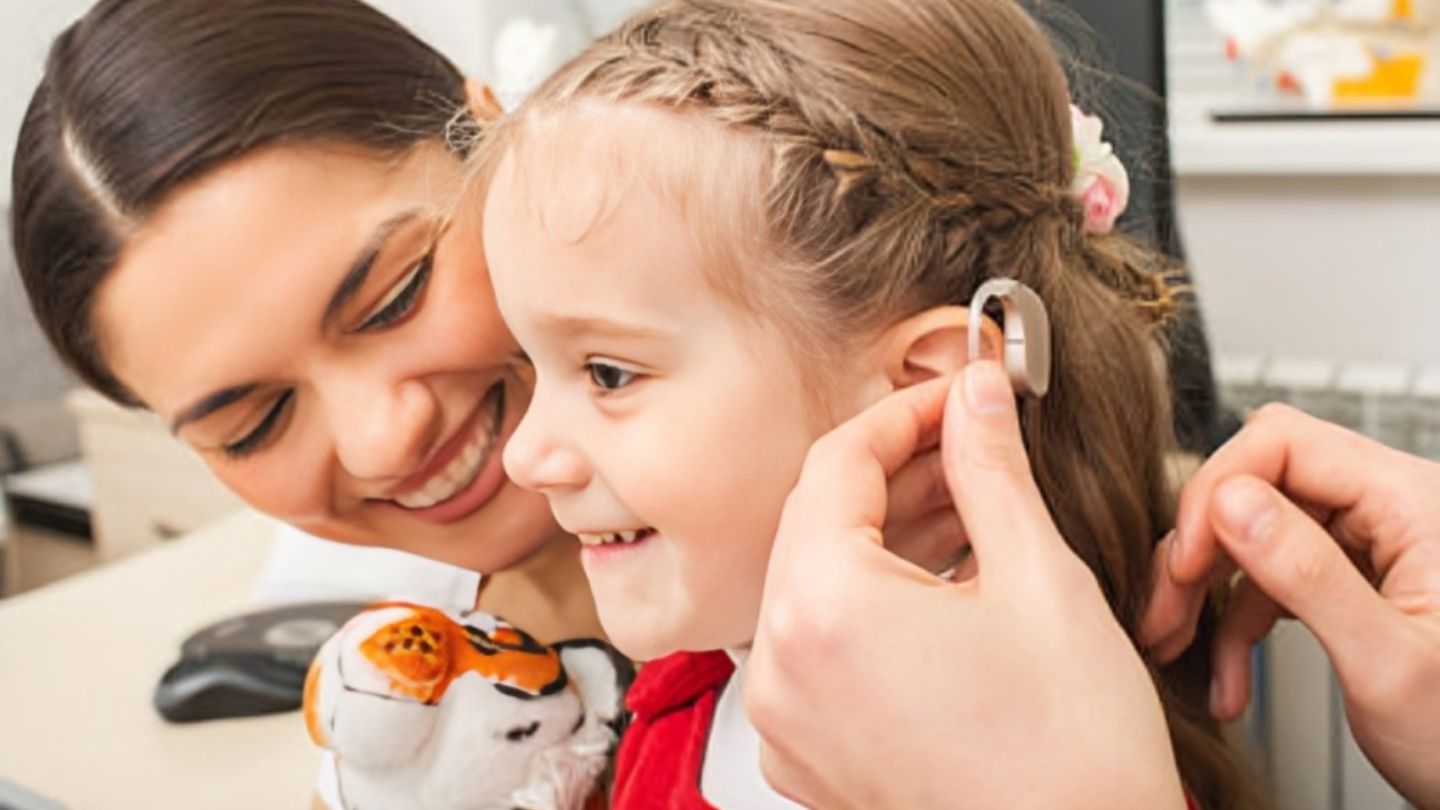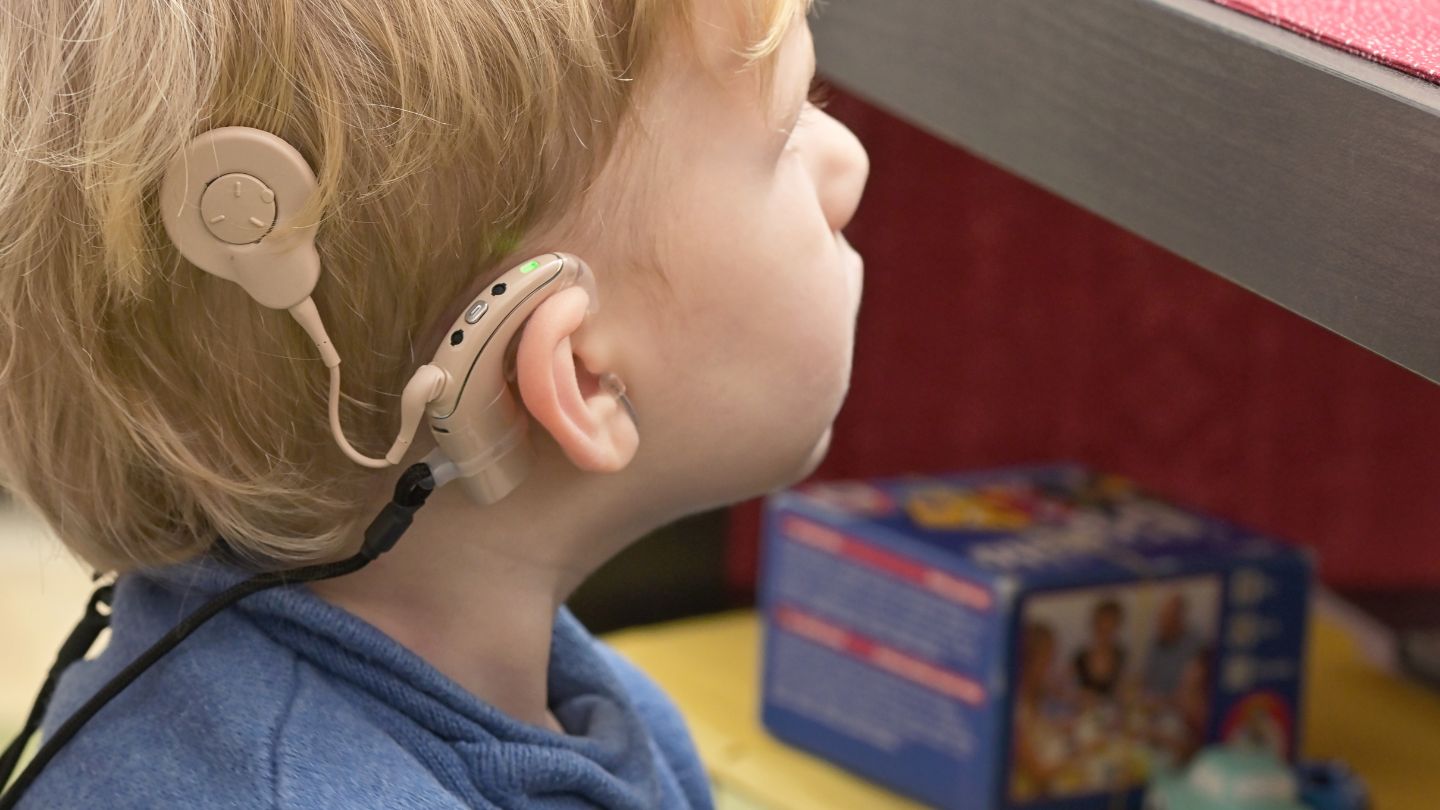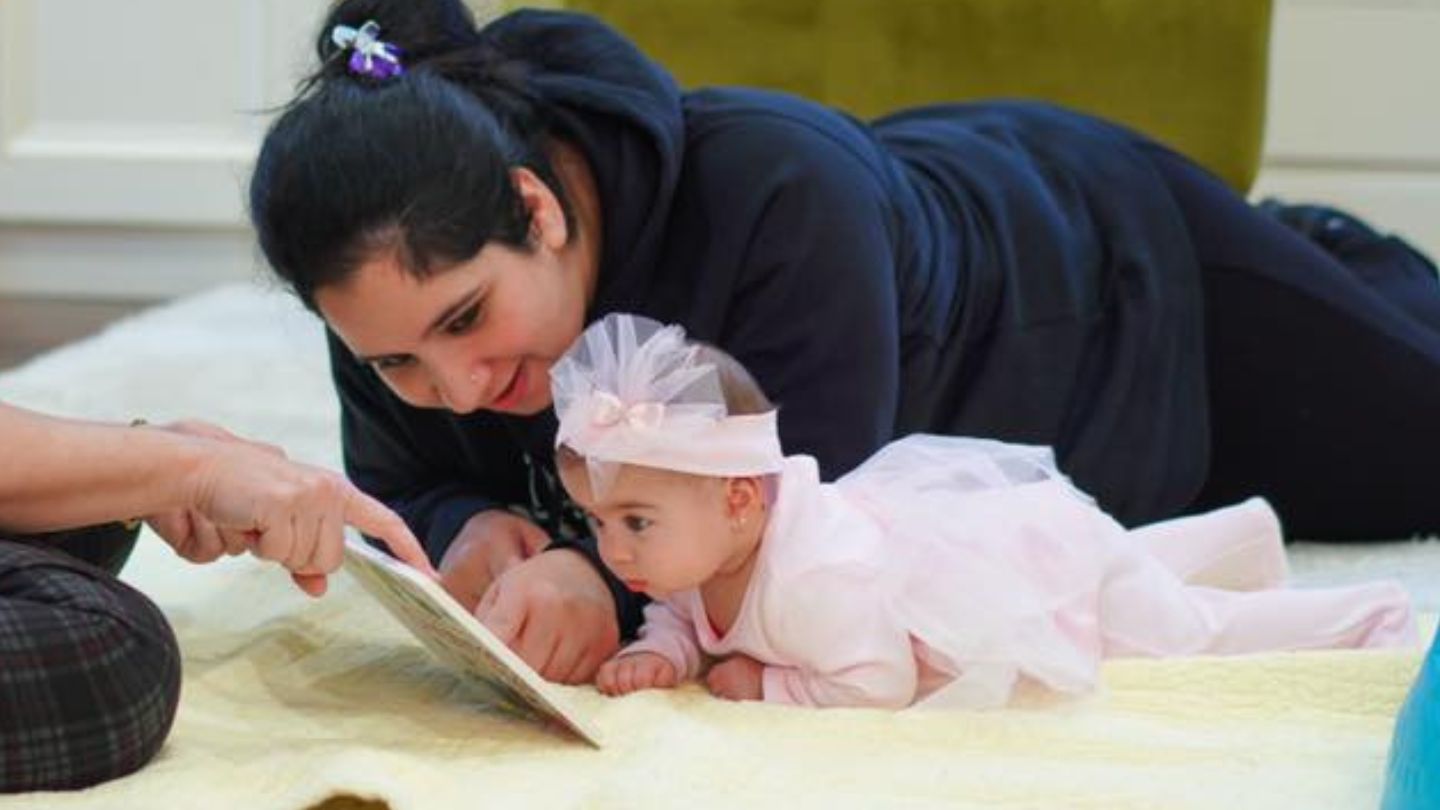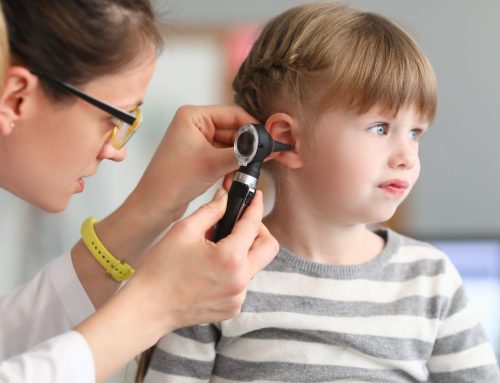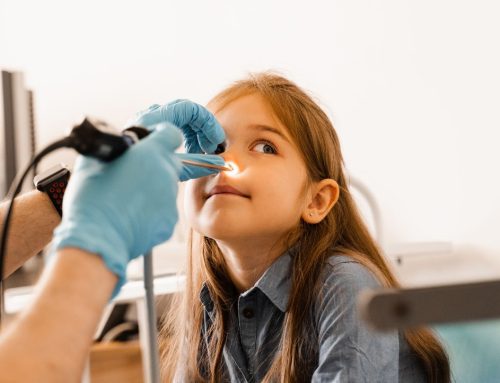When your child is about to receive cochlear implants, it marks a significant step in their journey to better hearing. As a parent, you want to ensure that this transition is as smooth and positive as possible. This blog will guide you through essential tips and insights on preparing your child for cochlear implants, helping them embrace this new chapter with confidence and ease. From understanding the procedure to emotional readiness, we aim to provide you with the knowledge and support needed to navigate this life-changing experience.
Key Takeaways
- Cochlear implants significantly enhance the ability of children with severe hearing loss to learn spoken language, especially when implanted before the age of five.
- A thorough pre-operative evaluation involving audiologists and imaging tests is essential to determine candidacy for cochlear implants and to plan surgery effectively.
- Post-operative care, including regular follow-ups and continued rehabilitation, is crucial for ensuring the success of cochlear implants and supporting the child’s speech and language development.
Understanding Cochlear Implants
Cochlear implants are remarkable devices that open up the world of sound to children with severe hearing loss. Unlike traditional hearing aids, which amplify sound, cochlear implants bypass damaged areas of the ear and directly stimulate the hearing nerve. This allows children to hear by sending sound signals directly to the brain.
Children with cochlear implants can learn to recognize a range of sounds, from loud noises to soft whispers, and even enjoy music. These devices significantly enhance spoken language skills, especially when implanted before the age of five. The earlier a child receives a cochlear implant, the better their chances of developing strong language abilities.
The success of cochlear implants depends on several factors, including the age at which the surgery is performed, prior hearing experience, and consistent use of the device. Longer durations of hearing loss before implantation are linked to poorer outcomes in language development. Thus, early intervention is crucial for maximizing the benefits of cochlear implants.
Initial Consultation and Evaluation
Embarking on the path to receiving a cochlear implant begins with an initial consultation, where your child undergoes a thorough examination by an audiologist. This professional conducts various auditory assessments to gauge the degree of hearing impairment and evaluate how well current hearing aids are performing.
During this evaluation stage, speech perception tests are also administered by the audiologist to determine if your child is a suitable candidate for cochlear implantation. Should these evaluations suggest that your child may benefit from such an implant, imaging procedures like CT or MRI scans follow. These allow an ear-nose-throat (ENT) surgeon to inspect the anatomy of your child’s ear thoroughly and confirm that it can accommodate the inner ear device.
Ensuring that all considerations have been made regarding whether a cochlear implant represents the best option paves the way for meticulous planning prior to proceeding with surgery—bolstering chances for improved hearing outcomes post-implantation. When considering cochlear implants for kids in Atlanta, seek a reputable and experienced team of professionals who will guide you through every step of the process.
Preparing Your Child Emotionally
Preparing your child emotionally for cochlear implant surgery is as crucial as medical readiness. Kids may feel excited, confused, or hesitant about their implants, which is normal. Parents should manage their fears and stay positive to reassure their children. Support from teachers, relatives, and peers with implants can help reduce isolation. For young children, play-acting with dolls or toys can ease understanding of the procedure. Consulting psychologists can offer helpful strategies.
Pre-Surgery Medical Preparations
Ensuring a smooth cochlear implant surgery for your child involves meticulous medical preparation. A critical step is scheduling a pre-operative appointment, which takes place two to three weeks prior to the surgery. During this visit, necessary blood tests are conducted, and there’s an essential discussion with an anesthesiologist about employing general anesthesia in the upcoming procedure.
The consultation regarding anesthesia plays a pivotal role in the preparatory stages before surgery. It allows the anesthesiologist to review your child’s health records and current condition to confirm their suitability for undergoing cochlear implant surgery with general anesthesia. It is important that your child has all required immunizations up-to-date, specifically including meningitis vaccination as part of precautionary measures against potential infections.
Thoroughly following through with these crucial preparations contributes significantly towards ensuring a safe execution and positive result from your child’s cochlear implant surgery process. By adhering strictly to what has been prescribed by surgeons and satisfying every stipulated medical protocol, you can help pave the way toward the successful implementation of the cochlear implant for your child.
The Day of Surgery: What to Expect
On the day of your child’s cochlear implant surgery, it’s natural to feel a mix of emotions. Knowing what to expect can help ease some of the anxiety. The surgery typically involves making a small incision behind the ear to place the cochlear implant. The duration of the surgery can vary but generally takes around two hours per ear.
Your child will be under general anesthesia during the procedure to ensure they are comfortable and pain-free. After the surgery connects, a bandage is applied to the head to protect the incision site as it heals. It’s important to follow the surgeon’s instructions for post-operative care to ensure a smooth recovery.
Recovery from cochlear implant surgery can take three to four weeks before the system is activated. During this time, one parent or caregiver is encouraged to stay with the child to provide comfort and support. The surgical team will guide you through the process, offering reassurance and answering any questions.
Post-Operative Care and Recovery
The success of cochlear implant surgery largely depends on appropriate care following the operation. After surgery, a bandage is usually placed around the head to safeguard the surgical site, and the surgeon will provide detailed instructions for post-operative maintenance. To maintain cleanliness at the incision site once the bandage has been taken off, it’s crucial to gently wash that area with warm water and mild soap every day.
After undergoing cochlear implant surgery, patients are advised to stay hydrated and consume a healthy diet, which aids in recuperation while mitigating any after-effects from anesthesia. Ongoing appointments for checking are vital as they track both recovery progress and how well the cochlear implant is functioning. These regular checks help promptly address potential complications, ensuring that your child’s hearing aid performs effectively.
Consistent fine-tuning sessions, along with evaluations of your child’s new hearing apparatus, are indispensable for calibrating device settings, which enhance auditory experiences substantially over time. Compliance with medical advice provided by healthcare professionals involved in your child’s care plan, coupled with punctual attendance of all recommended follow-ups, plays a pivotal role in optimizing hearing abilities alongside language skills development post-implantation.
Supporting Your Child’s Speech and Language Development
Ensuring the advancement of your child’s speech and language skills following cochlear implant surgery is an enduring endeavor. The most advantageous period for a young child to undergo cochlear implant surgery is around nine months old, as it can greatly enhance outcomes in their speech and hearing development. Early receipt of the implant allows for more effective melding of auditory capabilities with language understanding.
It’s essential that children equipped with cochlear implants receive consistent rehabilitation and listening therapy to hone their auditory faculties and grasp of language. Such therapeutic practices aid in teaching your child how to discern and make sense of different sounds, which contributes significantly to the improvement of spoken communication abilities. After receiving a cognitive device, interactions between parent and child become integral in cultivating speaking proficiency.
Even after securing a cochlea-based prosthetic device designed for improved hearing, these children might still experience delays when measured against peers with typical hearing regarding linguistic maturity. Persistently nurturing involvement through various listening exercises combined with vocal training activities has the potential to close this developmental discrepancy while advancing communicative competence within your youngster.
Long-Term Care and Maintenance
Maintaining the functionality of a cochlear implant over time necessitates consistent care and upkeep. This includes routinely cleaning and inspecting the sound processor along with its accessories for peak performance. Prompt intervention for ear infections is critical to averting potential issues with the implant.
It’s equally important to be vigilant about any balance difficulties that might develop post-cochlear implant surgery. Regular assessments by your dedicated cochlear implant team are crucial in detecting and managing any such problems related to balance.
Adherence to these long-term care protocols ensures that your child can continue enjoying superior auditory experiences through their cochlear implant.
To Conclude
Preparing your child for cochlear implant surgery involves understanding the technology, emotional and medical preparations, and ongoing support for speech and language development. Each step is crucial to ensure a successful outcome and improve your child’s quality of life.
Pediatric Ear Nose and Throat of Atlanta, P.C. is dedicated to providing comprehensive care and support for children undergoing cochlear implant surgery. With our specialized team and state-of-the-art facilities, we measure success one child at a time. By following this guide and working closely with our care team, you can help your child achieve the best possible outcomes. Contact us to learn more about our services and how we can help your child’s journey to improved hearing and communication. For effective cochlear implants for children in Atlanta, reach out to us today.
Frequently Asked Questions
What should I expect on the day of my child’s cochlear implant surgery?
On the day of your child’s cochlear implant surgery, you can expect a small incision to be made behind the ear while your child is under general anesthesia. Post-surgery, a bandage will be applied, and recovery will take approximately three to four weeks before the device is activated.
What are the key aspects of post-operative care for cochlear implants?
It is essential for the recovery and functionality of the cochlear implants that patients keep the site of incision clean, stay well-hydrated, consume a nutritious diet, and go to all scheduled follow-up visits for checking and adjusting the implant.
These procedures are paramount in facilitating an optimal healing process and ensuring that the cochlear implant operates effectively.
How can I support my child’s speech and language development after cochlear implantation?
It is crucial to facilitate your child’s language and speech progress following cochlear implant surgery by securing an early implant, remaining committed to continuous rehabilitation, and being actively involved in listening therapy.
For the enhancement of auditory abilities and understanding of language, your participation in everyday conversations with your child plays a pivotal role.

